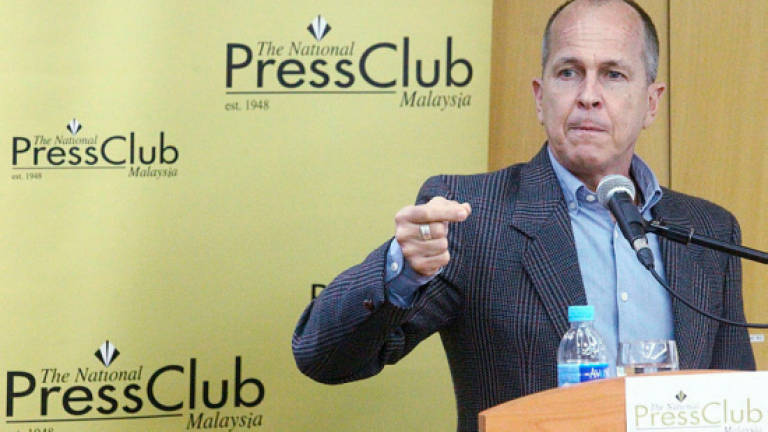Journalist should unite and talk as one: Peter Greste

KUALA LUMPUR: Journalists around the world should unite and talk as one to fight injustices against them and journalism, an award-winning Australian journalist said.
Peter Greste, who spent 400 days in the Egyptian prison with two of his colleagues, shared how collective and united voice was effective in their release.
"This is something that I would like the journalists to take on board. We tend to be a very fractious lot, we tend to be a very difficult to coordinate.
"By definition we are a bunch of individuals … but what our case proved was how effective we can be and how powerful we can be as a voice if we unite and we start to talk as one.
"It was enormously powerful in our case," he said in a luncheon talk on Investigative Journalism in War Zone today.
Greste, who spent 25 years reporting about war and conflict around the world, explained how the arrest was an intimidation to press freedom and how a social media campaign was instrumental in their release.
The social media campaign #FREEAJSTAFF started by his colleagues from Al-Jazeera inspired many and got massive public support around the world, and politicians around the world pressured diplomats to engage Egypt for their release.
"This is not about us but journalism generally, it was an attempt to intimidate journalists.
"So, I wrote two letters explaining the idea that it was an attack on press freedom and wasn't about us and that set the narrative.
"The hashtag was so effective that it got 3 billion impressions. It was enormously powerful," Greste said, adding in jest that perhaps his family was responsible for half of that.
He shared how even indirect pressure can help stave off intimidation and attacks on journalists and press freedom.
Upon his release, Greste continued the campaign and engaged the European Union, who told him to get Amnesty International's support.
"I said what do the Egyptians care about this? Amnesty doesn't have any impact in Egypt.
"He said 'it might not have an impact on the Egyptians, but it has an impact on me. And because I have you on my back, because I have the press on my back, I can then go to the Egyptians and say I can't normalise my relations with you until these guys get off my back.
"So even though it feels indirect, we have a voice," he said, stressing that collectively that campaign worked and that without any one of those pieces, he may still be in prison.
Greste also shared his experience in the Egyptian prison and how he was first placed in 8ft sq cell with 16 other inmates and later in solitary confinement.
He stressed that it was important to have a clear and strong state of mind if and when journalists are arrested or detained, to cope and survive the intimidation and suppression.
Greste and two of his Al-Jazeera colleagues, Mohamed Fahmy and Baher Mohamed, were arrested on Dec 29, 2013 for allegedly speaking with the banned Muslim Brotherhood.
The trio pleaded not guilty at the trial in Feb 2014 but were found guilty in June 2014.
He was sentenced to seven years jail but was released on Feb 1, 2015 after much campaigning and international pressure.
Greste had worked for a number of news organisations including Reuters and the BBC before joining Al-Jazeera's English news channel.